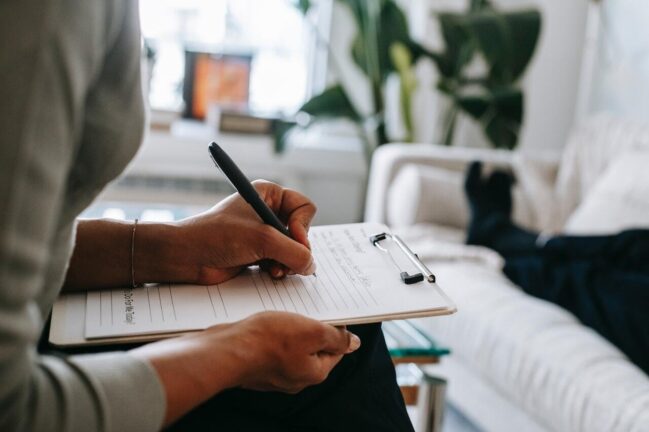Blog
19 Common Counselling Interview Questions
May 3, 2023
2 minutes, 32 seconds
Here are some interview questions to help anyone looking to apply for their first counselling role or looking to take the next step in their career.

Counsellors are trained to help their clients to overcome a whole host of difficult and overwhelming life situations, from breakups and bereavement to anxiety, addiction, and depression.
The core part of a counsellor’s role is to provide the right support, guidance, and therapeutic techniques to help people deal with their struggles so that they can embark on a positive road to recovery.
Whether you’re applying for your first counselling role or taking the next step in your career, it’s important you prepare for your interview thoroughly. Try to anticipate the questions you will be asked so that you can prepare well-rounded responses that will place you in good stead in securing the role you’re applying for.
We’ve rounded up some of the most common counselling interview questions.
General interview questions for therapists
During an interview for a counselling role, it’s not uncommon to be asked a number of general questions that will help employers find out more about your ambitions, long-term goals, personality, and whether or not you’ll be a good fit for the organisation.
Some of the most common general questions that you might be asked during your interview include:
- What do you consider to be your top three strengths and weaknesses to be?
- What traits should a good therapist display?
- Where do you see yourself in five years?
- What hobbies and activities do you enjoy outside of work?
- How do you handle stressful situations and high workloads?
- Why did you apply for this role?
- Why do you want to work for us?
- What are your thoughts on confidentiality?
- What are the essential components of trust?
Learning more about your experience and background
Many counselling jobs will require you to have a certain level of experience and specific qualifications. Therefore, don’t be surprised if you’re asked to discuss in depth your experience and background during the interview.
For example, you could be asked:
- What qualifications do you have and where did you study?
- What made you decide to become a therapist?
- Are you familiar with how to report instances of abuse?
- Can you tell me about a time you helped a client open up and how did you achieve this?
- Can you tell me about a time you worked with an angry or agitated client and how did you handle the situation?
- What is your preferred speciality?
- How do you get the best out of the client you are working with?
- How do you build a good rapport with your client?
Finally, you should also be prepared to answer these concluding questions, which are frequently used at the end of interviews:
- What would you consider to be the leading causes of mental health issues today?
- Would you be open to working nights or weekends to accommodate a client's schedule needs?
If you're interested in becoming a therapist, then check out our counselling and hypnotherapy courses. Get in touch with us today to see how you can make a difference. You can also request one of our prospectuses online.